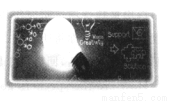ΧβΡΩΡΎ»ί
ιΟφ±μ¥ο
ΓΑYour family are GodΓ·s gift to you, as you are to them.Γ± «1984Ρξ≈Β±¥ΕϊΚΆΤΫΫ±ΒΟ÷ςDesmond Tutu ‘χΨΆΗω»Υ”κΦ“»ΥΙΊœΒΥΒΙΐΒΡ“ΜΨδΜΑΓΘ«κ»œ’φΤΖΈΕ’βΨδΜΑΘ§»ΜΚσΑ¥“Σ«σ”Ο”Δ”ο–¥“ΜΤΣΕΧΈΡΓΘ
ΡΎ»ί“Σ«σΘΚ
1. ΡψΕ‘’βΨδΜΑΒΡάμΫβΘΜ
2. ΫαΚœΨΏΧε ¬άΐΥΒΟςΘΜ
3. «ΓΒ±ΒΡΫαΈ≤ΓΘ
ΉΔ“βΘΚ
1. ΕΧΈΡΩΣΆΖ“―Ηχ≥ωΘ§≤ΜΦΤ»κΉή ΐΘΜ
2. ΈΡ÷–≤ΜΡή≥ωœ÷ΩΦ…ζΒΡΨΏΧε–≈œΔΘΜ
3. ¥ ΐΘΚ120Ήσ”“
Desmond Tutu, winner of the Nobel Peace Prize in 1984, once said, ΓΑYour family are GodΓ·s gift to you, as you are to them.Γ±, which tells us that
ΝΖœΑ≤αœΒΝ–¥πΑΗ
œύΙΊΧβΡΩ


